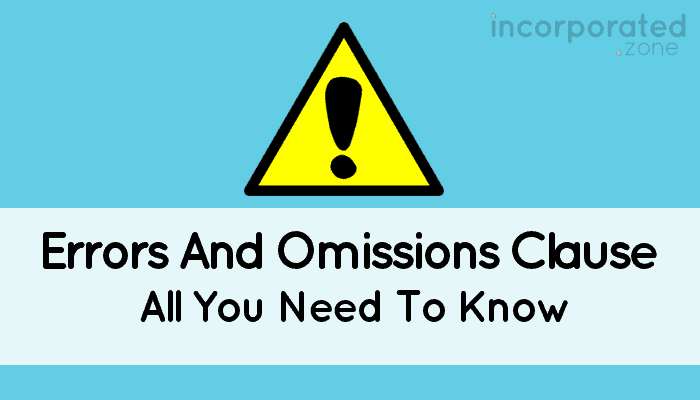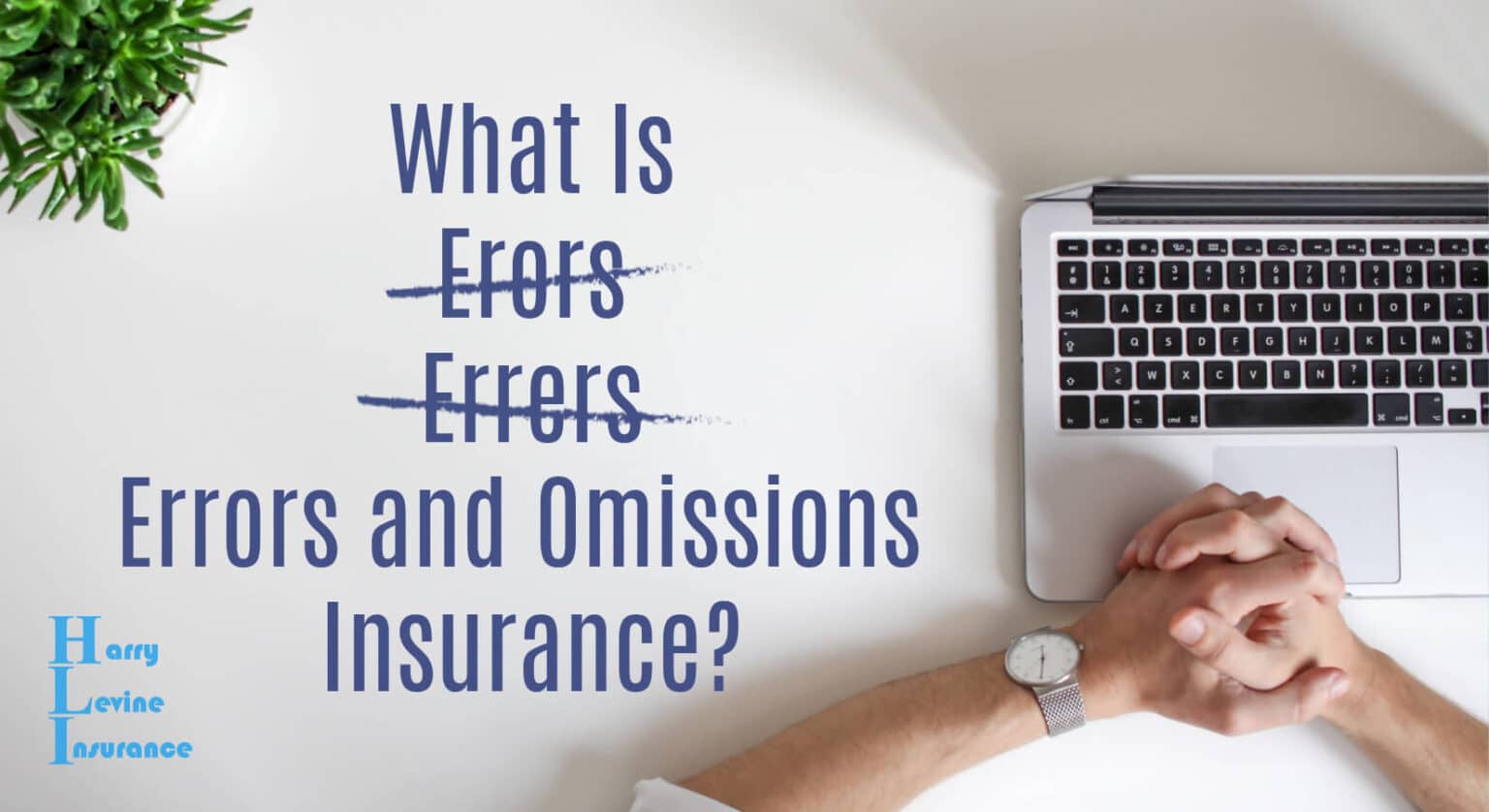Errors and omissions insurance for bookkeepers is a crucial aspect of their profession, offering protection and peace of mind. Let’s delve into the details to understand why this coverage is so important.
The content of the second paragraph that provides descriptive and clear information about the topic
Overview of Errors and Omissions Insurance for Bookkeepers
Errors and omissions insurance for bookkeepers is a type of professional liability insurance that provides coverage in case a bookkeeper makes a mistake or fails to perform their duties properly, resulting in financial loss for their clients.
Having errors and omissions insurance is crucial in the bookkeeping profession as it helps protect bookkeepers from potential lawsuits or claims filed against them for errors, negligence, or omissions in their work. This insurance coverage can help cover legal defense costs, settlements, or judgments that may arise from such claims.
Importance of Errors and Omissions Insurance
- Errors and omissions insurance provides financial protection for bookkeepers in the event of a lawsuit related to mistakes in their work.
- It helps maintain the reputation and credibility of bookkeepers by showing clients that they are prepared for unforeseen errors.
- Having this insurance can give bookkeepers peace of mind and allow them to focus on their work without constant fear of legal repercussions.
Examples of Situations for Errors and Omissions Insurance
- If a bookkeeper miscalculates a client’s taxes, resulting in penalties or fines for the client, errors and omissions insurance can help cover the financial losses.
- In case a bookkeeper overlooks a significant financial discrepancy in a client’s records, leading to financial harm to the client, this insurance can come into play to cover potential damages.
- If a bookkeeper fails to submit important financial documents on time, causing financial losses or missed opportunities for the client, errors and omissions insurance can assist in covering the resulting costs.
Coverage Details: Errors And Omissions Insurance For Bookkeepers

Errors and omissions insurance for bookkeepers provides specific coverage tailored to the unique risks they face in their profession. Here are the key details regarding the coverage options available:
Types of Coverage
- Professional Liability Coverage: This protects bookkeepers against claims of errors, negligence, or failure to perform professional duties.
- Legal Defense Costs: Coverage for legal fees and expenses incurred in defending a claim related to professional services.
- Settlements and Judgments: Coverage for settlements or judgments that may arise from a covered claim.
- Claims Made Basis: Coverage is typically provided on a claims-made basis, meaning the policy must be active when a claim is filed.
Comparison with General Liability Insurance
Errors and omissions insurance is often confused with general liability insurance, but they serve different purposes:
- General Liability Insurance: Covers bodily injury, property damage, and personal injury claims, not specifically related to professional services.
- Errors and Omissions Insurance: Specifically designed to cover claims of professional negligence, errors, or omissions in the services provided.
- Bookkeepers may need both types of insurance to ensure comprehensive coverage for their business.
Limits and Exclusions
It’s important for bookkeepers to understand the limits and exclusions in their errors and omissions insurance policies:
- Limits of Coverage: Policies have limits on the total amount the insurer will pay for claims, so bookkeepers should choose coverage limits that align with their risk exposure.
- Typical Exclusions: Common exclusions may include fraud, criminal acts, intentional wrongdoing, and claims outside the policy period.
- Bookkeepers should carefully review their policy to understand what is covered and any specific exclusions that may apply.
Benefits of Errors and Omissions Insurance
Errors and Omissions Insurance offers several key benefits for bookkeepers, providing financial protection and peace of mind in their professional practice.
Financial Protection
Errors and Omissions Insurance safeguards bookkeepers from potential financial risks associated with professional mistakes or omissions. In the event of a lawsuit or claim filed against them for errors in their work, this insurance coverage can help cover legal fees, settlements, or damages awarded to clients.
Reputation Preservation
Having Errors and Omissions Insurance can also help bookkeepers protect their reputation. By demonstrating that they have this coverage in place, clients may feel more confident in hiring them, knowing that they are prepared to address any potential errors that may occur during their engagement.
Peace of Mind
One of the most significant benefits of Errors and Omissions Insurance is the peace of mind it provides to bookkeepers. Knowing that they have a safety net in place in case of unforeseen circumstances can alleviate stress and allow them to focus on their work without constantly worrying about potential legal issues.
Real-life Example
Consider a situation where a bookkeeper makes an error in financial statements, leading to a client suffering financial losses. Without Errors and Omissions Insurance, the bookkeeper would have to bear the full financial burden of the damages. However, with this insurance coverage, the bookkeeper can rely on the policy to cover the costs, protecting their business and personal assets.
Obtaining Errors and Omissions Insurance

Obtaining errors and omissions insurance for bookkeepers is a crucial step in protecting your business from potential liability claims. Here is a guide on how to go about it:
Process of Obtaining Errors and Omissions Insurance
- Research Different Insurance Providers: Start by researching and comparing insurance providers that offer errors and omissions insurance for bookkeepers.
- Get Multiple Quotes: Reach out to these providers and request quotes for the coverage you need. Compare the coverage options and premiums offered.
- Fill Out an Application: Once you’ve selected a provider, fill out an application form detailing your business information, services provided, and any past claims.
- Review and Sign the Policy: After the application is processed, carefully review the policy terms, conditions, and coverage limits. Sign the policy to activate your coverage.
Factors Impacting Cost of Errors and Omissions Insurance Premiums, Errors and omissions insurance for bookkeepers
- Business Size and Revenue: The size of your bookkeeping business and its revenue can impact the cost of premiums.
- Claims History: A history of past claims or lawsuits can lead to higher premiums.
- Coverage Limits: The higher the coverage limits you choose, the higher the premium may be.
- Industry Risk: Bookkeeping for high-risk industries may result in higher premiums.
Tips for Selecting the Right Errors and Omissions Insurance Policy
- Assess Your Risks: Identify the specific risks your bookkeeping business faces to ensure you have adequate coverage.
- Compare Coverage Options: Compare the coverage options, deductibles, and limits offered by different insurance providers.
- Read the Fine Print: Pay close attention to the policy terms, exclusions, and conditions to understand what is covered and what is not.
- Consult with an Insurance Agent: Consider consulting with an insurance agent specializing in errors and omissions insurance to help you navigate the process.
Closure

In conclusion, errors and omissions insurance for bookkeepers serves as a safety net, safeguarding professionals against unforeseen circumstances. It’s a wise investment for those in the bookkeeping field.
FAQ Insights
What does errors and omissions insurance for bookkeepers cover?
Errors and omissions insurance typically covers legal fees, settlements, and court costs associated with claims of professional negligence or mistakes.
Is errors and omissions insurance mandatory for bookkeepers?
While it’s not legally required, having this insurance is highly recommended to protect bookkeepers from financial risks.
How can bookkeepers find the right errors and omissions insurance policy?
Bookkeepers can consult with insurance providers specializing in professional liability coverage to find a policy that suits their specific needs.